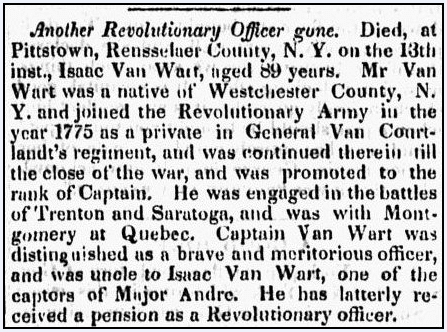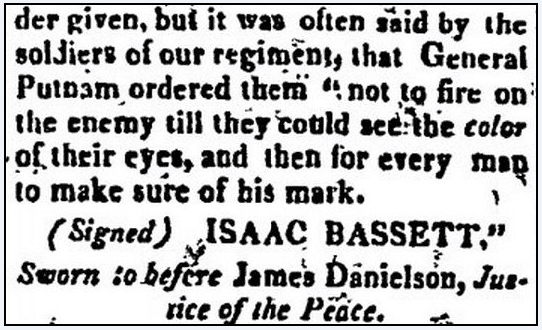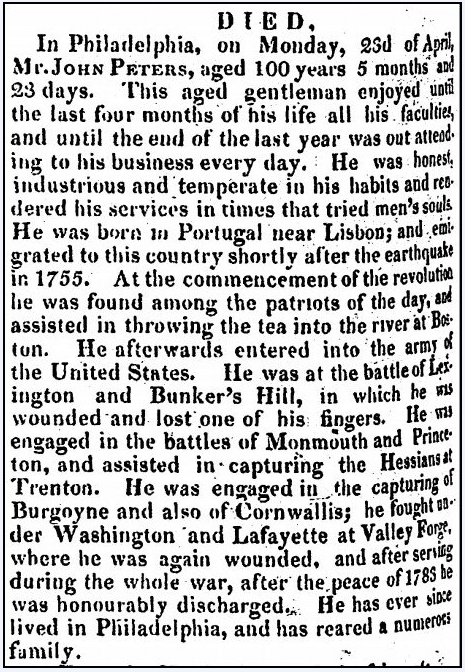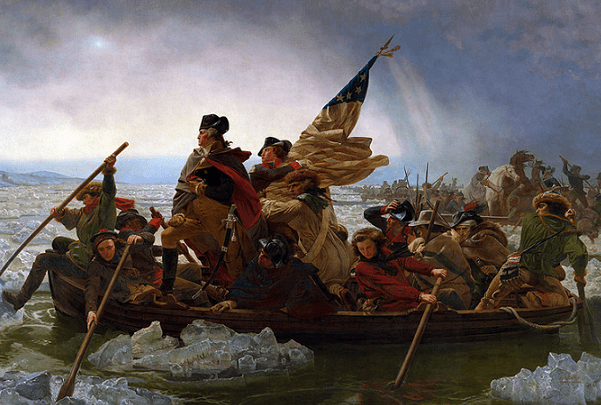So many Americans have fought and died to found and preserve our nation’s freedom.
It often comes as a surprise to genealogists to discover that newspapers reported—in detail—about the lives of the men who fought in the American Revolutionary War.
Estimates are that 92,000 Americans and French troops fought 314,000 British troops, Hessian troops and loyalists. Of that number 25,000 Americans died in the war and an estimated 25,000 more were wounded.
Once again David beat Goliath.
Our ancestors fought and won their independence from Britain…and we want to know their stories.
Militia lists, bounty land warrants and town monuments document their names, but it is often in newspapers that we find their personal stories.
Newspapers tell us about their life before, during and after the Revolutionary War.

Newspapers tell us gripping Revolutionary War stories like this one of Isaac Bassett and the men in his regiment who were told “not to fire on the enemy till they could see the [whites] of their eyes…”

These words have been passed down to us for over 200 years.
Newspapers let us personalize these stories to our own families.
And newspapers can tell us the unexpected details of their lives. Like this obituary of John Peters, who died at age 100 in Philadelphia, Pennsylvania, in 1832.
And newspapers can tell us the unexpected details of their lives. Like this obituary of John Peters, who died at age 100 in Philadelphia, Pennsylvania, in 1832.

With a name like John Peters it would be easy to assume that he was born in America or England, causing us to spend years looking for his birthplace in those countries.
Searching through the usual Revolutionary War records we might not ever find it mentioned that “He was born in Portugal near Lisbon” or that he immigrated “to this country shortly after the earthquake in 1755,” but his newspaper obituary provides this information.
Wow—that was an unexpected genealogy find.
This patriot’s 1800s obituary is filled with details about his life, his character and his service to the nation. From throwing tea into Boston Harbor to fighting in many of the most famous Revolutionary War battles – these are exactly the details we need to understand who he was and what he was like—and the information pointing us to where he was born.
As we think about Memorial Day, July 4th and documenting the lives of our ancestors, it is essential that we uncover every newspaper article—every fact and every clue—so that we can accurately record their information and preserve and permanently pass down their stories for future generations.
Onward.
